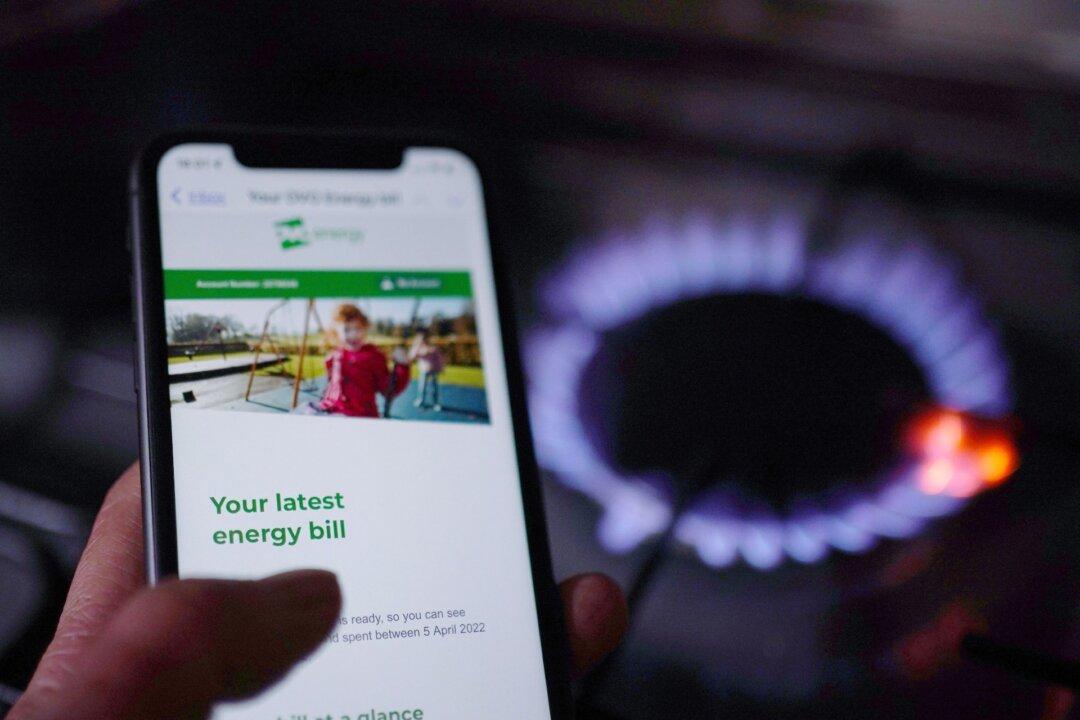British households will face an 80 percent rise in energy prices by October, the UK energy regulator Ofgem has warned.
Ofgem announced on Aug. 26 that the energy price cap for around 24 million households in England, Scotland, and Wales will rise by 80.06 percent on Oct. 1, sending the average household’s yearly bill from £1,971 to £3,549 ($4,200).





